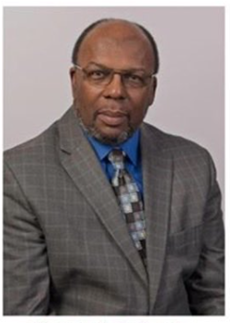28 February 2022
WIN is pleased to feature this Spotlight in honour of Black History Month.
This article was first published by WIN member the Government Accountability Project on their website on 24 February 2022. Government Accountability Project is a whistleblower protection and advocacy organisation located in Washington, DC. In addition to focusing on whistleblower support, they also lead campaigns to enact whistleblower protection laws both domestically and internationally.
In this article Government Accountability Project celebrates whistleblowers in the US and highlights the unique challenges that come with being Black and standing up to power.
All whistleblowers face risks that can endanger their life and career, but Black people face greater retaliation due to systematic racism and higher hurdles to speaking up in the first place. Historically it is white, male whistleblowers that are the most celebrated when they speak up as they inherently hold more power and influence than marginalised groups.
In times of crisis, wrongdoing costs lives. It is important and urgent to ensure that those aware of misconduct speak up, without fear of retaliation, and that these concerns are taken seriously and acted on. For this to be a reality we need to be better at supporting whistleblowers from all walks of life that use their voices to bring about change and promote justice.
First published 24 February 2022
In honor of Black History Month, our nation celebrates the brave individuals who have stood up for their communities and for what is right, even when it endangers themselves. Over the past few years, our country has had a reckoning with its long history of racism as protests like Black Lives Matter occur across the country, voting rights legislation struggles through Congress, and countless other movements towards equity take effect. If not for these Black leaders, educators, and truthtellers, this change would not continue to forge ahead. To celebrate Black History Month, Government Accountability Project is highlighting some of the brave whistleblowers who have stood up to wrongdoing in favor of what is right:
In September 2020, nurse Dawn Wooten’s story went viral as she blew the whistle on horrific medical failures at ICE’s Irwin County Detention Center (ICDC). Ms. Wooten had raised concerns internally first about the endangerment of immigrants and workers from the spread of COVID-19 at ICDC and hysterectomies and other gynecological procedures being performed on female detainees with dubious consent. Because of these internal reports, Ms. Wooten was demoted to an on-call nurse and was not offered work. Government Accountability Project filed a retaliation complaint on Ms. Wooten’s behalf and sent a joint letter to congress requesting an official investigation of the center after her disclosure with the DHS OIG.
at ICE’s Irwin County Detention Center (ICDC). Ms. Wooten had raised concerns internally first about the endangerment of immigrants and workers from the spread of COVID-19 at ICDC and hysterectomies and other gynecological procedures being performed on female detainees with dubious consent. Because of these internal reports, Ms. Wooten was demoted to an on-call nurse and was not offered work. Government Accountability Project filed a retaliation complaint on Ms. Wooten’s behalf and sent a joint letter to congress requesting an official investigation of the center after her disclosure with the DHS OIG.
Ms. Wooten’s explosive disclosures incited international calls for reform, leading to demands by more than 170 members of Congress for investigations into conditions at ICDC and its effective closure in September 2021, a year after her story went public. Her disclosures opened the door for 57 women who were victims to come forward with their stories, with an independent medical review team substantiating evidence of medical misconduct. Despite Ms. Wooten’s heroic actions, she has still faced retaliation and ostracization from her community even though her bravery led to real change.
 In his 32 years of service, former Chief Deputy U.S. Marshal Matthew Fogg suffered substantial racial bias while he led a team that tracked down over 300 of America’s most-wanted fugitives. For example, he described how his white colleagues deserted him without his supervisory permission just before he and other officers arrested two heavily armed suspects, one charged with murder and prison escape, Michael Lucas, featured on the popular T.V. show “Americas Most Wanted.” According to Fogg in the 1997 New York Post “Bigots with Badges” investigation, “[Lucas] attempted to pull a gun on me…The white deputies knew when the bust was coming, but in the end, where were they? They deserted their posts.” His colleagues were left unpunished, and no charges were filed; in fact, one of the deputies received a promotion.
In his 32 years of service, former Chief Deputy U.S. Marshal Matthew Fogg suffered substantial racial bias while he led a team that tracked down over 300 of America’s most-wanted fugitives. For example, he described how his white colleagues deserted him without his supervisory permission just before he and other officers arrested two heavily armed suspects, one charged with murder and prison escape, Michael Lucas, featured on the popular T.V. show “Americas Most Wanted.” According to Fogg in the 1997 New York Post “Bigots with Badges” investigation, “[Lucas] attempted to pull a gun on me…The white deputies knew when the bust was coming, but in the end, where were they? They deserted their posts.” His colleagues were left unpunished, and no charges were filed; in fact, one of the deputies received a promotion.
Fogg alleged that he and other Black officers had been denied promotions, received less desirable assignments tied to their duties, and endured disproportionately harsher punishments for infractions. When Fogg started a Title VII discrimination case in 1984, he was denied promotion and assigned to a “dead-end” desk job. His superiors threatened him with further retaliation if he didn’t drop his complaint. As such, Fogg stated, “The stress got too much for me and I filed a Workers’ Compensation Board claim — ‘stress-related disorder caused by discrimination and retaliation in the workplace.’” Though the board upheld Fogg’s claim, when Fogg and his physician said he was not ready to return to work, his superiors dismissed him from the United States Marshals Service (USMS) for insubordination. When Fogg presented his complaints in 1985 to the Department of Justice (DOJ), it took seven years for an investigation to be completed and 13 years before a 1998 Title VII trial where Fogg successfully sued the DOJ and won $4 million on the assertion that Black officers were systematically discriminated against based on race by the USMS.
Norman A. Carter, Jr. is a retired Philadelphia Police Department Officer after 25 years
on the force. Carter reported a scandal that involved police officers and a local burglary ring to the Internal Affairs Bureau (IAB) and was subsequently blacklisted by members of the force who began to surveil him and refused to support him in field operations. In retaliation, the department began creating fabricated violations he did not commit to establish a pattern of behavior which would allow them to fire him, since he never had disciplinary problems before. Carter was offered a hearing assuming he’d plead guilty, but despite the complete lack of evidence against him Carter was still suspended for 10 days.
reported a scandal that involved police officers and a local burglary ring to the Internal Affairs Bureau (IAB) and was subsequently blacklisted by members of the force who began to surveil him and refused to support him in field operations. In retaliation, the department began creating fabricated violations he did not commit to establish a pattern of behavior which would allow them to fire him, since he never had disciplinary problems before. Carter was offered a hearing assuming he’d plead guilty, but despite the complete lack of evidence against him Carter was still suspended for 10 days.
During his suspension, Carter filed another complaint against his department through the IAB, this time with a fellow police officer, describing the retaliation against him. The officer accompanying Carter suggested that he be transferred for his own protection, but IAB was clear that could not happen until they took the investigation to the police commissioner, who would make that decision. Twenty minutes after returning home, Carter was transferred.
Eventually a raid was executed, and the burglary ring was broken up. This resulted in the seizing of millions of dollars of guns and merchandise and the burglary ringleader being sentenced to five years in federal prison. Several involved Police Officers were transferred. Many others, including the District Commander, were arrested later. Despite this validation of his original claims, throughout his career and even after he retired Carter remained a target for retaliation and harassment, forcing him to leave Philadelphia.
While racial tensions have come to a tipping point in our country over the past few years, whistleblowers who come forward and report abuse and racism have been unsung heroes for decades. As we acknowledge these courageous people, we must remember that whistleblowing is already a risk to one’s life and career, but Black individuals who speak up face even more hardship because of racial bias. It is with this in mind that we have developed multiple free resources to educate potential whistleblowers about their rights, risks, and options, and encourage all whistleblowers to seek expert legal counsel as early as possible.
We’re proud to honor the courageous contributions of these people who refused to stay silent in the face of serious misconduct. Their legacies will join those of so many other Black whistleblowers of the who used their voices to protect the public interest and promote justice.